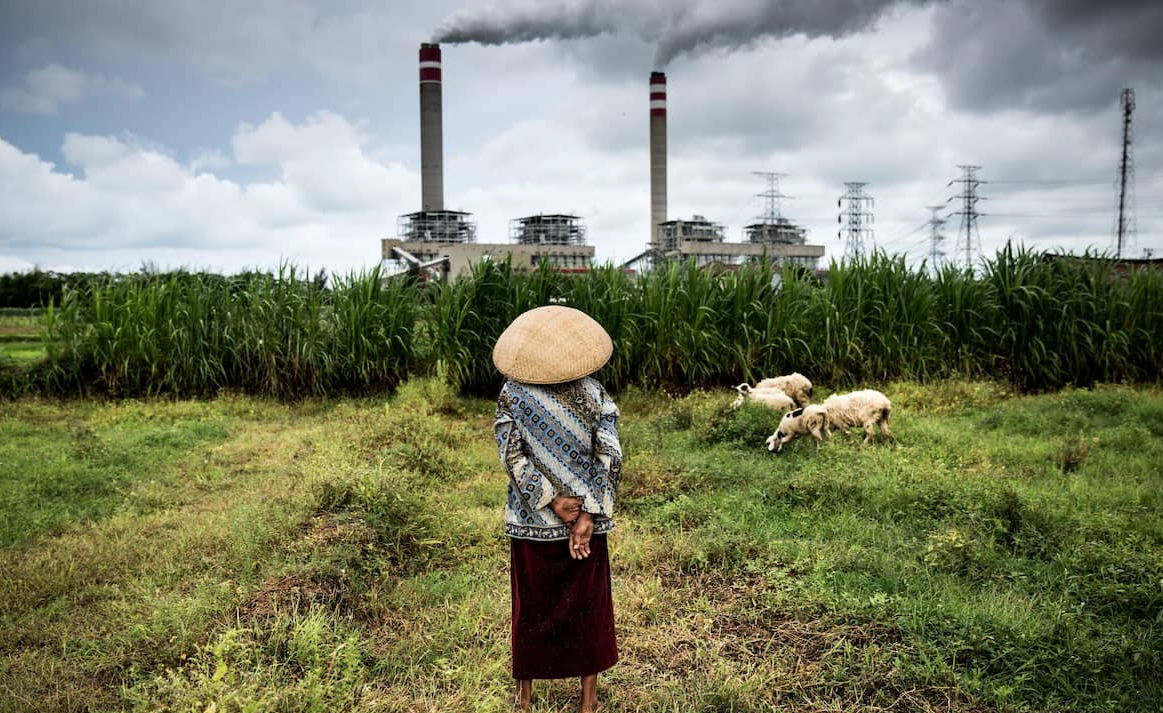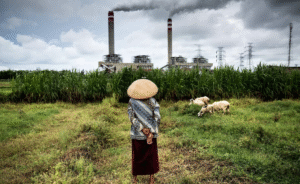Physical Address
304 North Cardinal St.
Dorchester Center, MA 02124
Physical Address
304 North Cardinal St.
Dorchester Center, MA 02124

Energy, especially fossil fuels like gasoline, coal, and natural gas, is one of the crucial resources that sustains various facets of human existence. Extracting these energy sources, typically found within the earth’s strata, requires processes such as drilling, excavation, or land clearing.

If not handled properly, these processes can lead to significant environmental consequences, such as ecosystem disruption or alterations to the natural terrain. From an Islamic viewpoint, preserving the equilibrium of nature is a vital duty, making it essential to manage resources wisely.
Conversely, energy resources, including fossil fuels, are a divine blessing from Allah intended for the benefit of humanity. The harnessing of this energy has become a primary focus globally to fulfill diverse needs, spanning from industrial applications to everyday life. However, it is crucial to ensure that this harnessing happens in a responsible manner to mitigate adverse environmental effects.
As time advances, the world is shifting towards renewable energy sources, such as solar, wind, and hydroelectric energy, which are regarded as more ecologically friendly, causing significantly less impact on the environment compared to fossil fuels. Renewable energy presents a sustainable alternative, becoming an increasingly favored choice to foster a harmonious balance between human necessities and environmental conservation. From the Islamic perspective, energy usage should align with the principle of upholding Allah’s stewardship over nature. Renewable energy, prized for its limited environmental footprint, is often viewed as more congruent with these principles than fossil energy, whose extraction methods can present ecological issues if not managed adeptly.
وَعَنْ رَجُلٍ مِنَ الصَّحَابَةِ قَالَ: غَزَوْتُ مَعَ رَسُولِ اللَّهِ ﷺ فَسَمِعْتُهُ يَقُولُ: «النَّاسُ شُرَكَاءُ فِي ثَلَاثٍ: فِي الْكَلَأِ، وَالْمَاءِ، وَالنَّارِ» رَوَاهُ أَحْمَدُ
Meaning, “One of the Companions said: I fought with the Messenger of Allah and heard him say: People collectively have rights in three things, in pasture, water, and fire.” (HR Imam Ahmad)
Sheikh Wahbah Zuhaili made a clear remark regarding this hadith as it highlights the importance of a nation that embodies its citizens in managing the available resources within the country. It is fitting for the government to oversee fundamental necessities such as essential natural resources, extraction industries, and the creation of primary materials.
Moreover, the government should also regulate public assets and elements that evolve according to environmental changes and societal progress like various public waterways, minerals, and petroleum, even if they lie on privately owned lands. The state must be actively involved in supplying electrical energy, public amenities, and similar infrastructures, which constitute essential facilities for the community’s welfare. (Al-Fiqhul Islam wa Adillatuhu, [Beirut, Darul Fikr: 1985], vol. 5, page 4990). Hence, the actions taken by the current administration are justified from an Islamic viewpoint. Engaging in extraction activities to secure energy and fulfill community requirements is valid. However, there exists a gap between the maximal production strategy and the realization of energy outputs.
The Central Bureau of Statistics reported that Indonesia produced 775,183,592 tons of coal in a single year. This figure exceeds the production ceiling for coal as stipulated in Presidential Regulation (Perpres) Number 22 of 2017 regarding the National Energy General Plan, which caps coal production at 400 million tons. The excessive extraction of fossil fuels like coal can lead to adverse consequences in multiple aspects.
Mining operations could result in land degradation, air contamination, and significant climate variability. Ibn Ashur notably warned against excessive mining practices, asserting that the extraction of various minerals should yield benefits for the broader community. However, pressing for increased production ultimately hampers the intended goals of creation, land stewardship, growth, and output. (Ibn Ashur, Maqashid As-Syariah, [Qatar, Ministry of Waqf: 2004], vol. II, page 408). Consequently, the over-extraction of minerals contravenes Islamic principles that prioritize environmental stewardship.
The excessive extraction of certain minerals is bound to be exploitative and detrimental to the environment. As noted by At-Thabari, referenced by Al-Qurthubi, those who set fire to crops and harm donkeys (inflicting damage on the environment) will face Allah’s curse.” (Shamsuddin Al-Qurthubi, al-Jami’ Li Ahkami Al-Qur’an, [Cairo, Darul Kutub]
According to At-Thabari, referenced by Al-Qurthubi, anyone who scorches fields and slaughters donkeys (ruining the environment) will be condemned by Allah.” (Shamsuddin Al-Qurthubi, al-Jami’ Li Ahkami Al-Qur’an, [Cairo, Darul Kutub al-Mishriyah: 1963] Volume 3, page 17).
Residents frequently voice their concerns that mining operations are significantly disruptive. Long-term ecological repercussions such as extreme temperature fluctuations impact life, manifesting in heightened risks of natural calamities, ecosystem disturbances, reduced agricultural productivity, and declines in human health due to heat waves and worsening air quality.
Therefore, the advantages of mining endeavors do not outweigh the damage they inflict. Empowering Renewable Energy as the Optimal Alternative to Fossil Fuels has substantial negative consequences. On one hand, energy empowerment remains essential for humanity in sustaining daily activities. Hence, renewable energy stands as the prime alternative. The 2017 book Fikih Renewable Energy elaborates on the tangible benefits derived from both renewable and fossil energy in the context of energy utilization.
On the other hand, the detriment caused by both sources is evident. Nonetheless, the negative impact of renewable energy pales in comparison to that of fossil fuel utilization. When considering the lesser side of mafsadat or detrimental effects stemming from both options, opting for renewable energy becomes imperative. This decision is grounded in fiqh principles that advocate for minimizing harm between two alternatives that bear potential risk.
إِذَا اجْتَمَعَ مُفْسِدَتَانِ قُدِّمَ أَخَفُّهُمَ
It means: “When there are two evils, the lesser evil must take precedence.” (Abu Abdurrahman al-Jazairi, Al-Qawa’id al-Fiqhiyyah al-Mustakhraj min Kitab I’lam al Muwaqqi’in, [Riyadh, Dar Ibn Affan: 2011], p. 333). 333). To give the reader an idea, the author will compare fossil and renewable energy empowerment. Typically, the area of land used for mining activities is 50 hectares. Previously, the industry had to mine 1 kilometer away from settlements.
Post-extraction processes in the sector necessitate periodic environmental preservation efforts, which do not always guarantee success. Furthermore, the industry bears the responsibility to alleviate natural damage, despite the inevitability of such occurrences within mining zones. This situation contrasts sharply with covering 50 hectares of land exclusively with solar panels, which does not invoke as severe environmental repercussions as mining does.
In reality, the extensive implementation of renewable resources like solar panels has the potential to lower operational costs to a remarkable zero rupiah. Clearly, this represents an optimal choice and aligns with Islam’s goal of environmental stewardship. In summary, Islam enthusiastically advocates for renewable energy due to its eco-friendly nature. The excessive reliance on fossil fuels and the degradation of nature will provoke the displeasure and divine wrath of Allah. However, it is not necessary to entirely cease mining activities. They can continue within sustainable production limits while simultaneously promoting renewable energy initiatives, such as large-scale solar panel production. Wallahu A’lam.